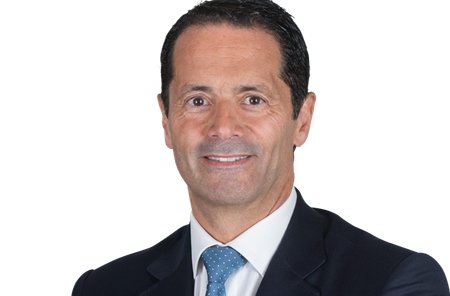At war with the ‘Big Four’

New data shows PwC was the second best performing law firm in Iberian M&A in 2018, while Deloitte and KPMG were also ranked in the top ten
 The presence of the ‘Big Four’ in the Iberian legal market has always provoked fierce debate. Their supporters say they have tremendous resources that enable them to make massive investments in back office technology, which allows them to provide more efficient services for clients. It is also claimed that this more efficient service delivery enables the ‘Big Four’ to charge much more competitive fees than their rivals. However, their detractors say they are rarely involved in the biggest M&A transactions, and due to their additional roles as auditors, they face a multitude of conflicts that restrict them from fully penetrating all parts of the market.But these are opinions. The facts are that the ‘Big Four’ are becoming an increasingly powerful force in the Iberian M&A market, which was dominated by mid-market deals in the last year, as new data confirms. While Mergermarket statistics show that Garrigues – under the leadership of managing partner Fernando Vives – advised on the most Iberian deals in 2018 (the firm was instructed on 96 deals with a total value of $53.8 billion), PwC Legal was the second ranked law firm by deal volume. Of all the leading M&A law firms in Spain, it was PwC Legal, which is headed by managing partner Joaquin Latorre, that experienced the most dramatic growth in the last 12 months by deal volume. PwC’s M&A practice more than doubled in 2018 – the firm advised on 86 deals (up from 36 the previous year) with a total value of $6.5 billion.
The presence of the ‘Big Four’ in the Iberian legal market has always provoked fierce debate. Their supporters say they have tremendous resources that enable them to make massive investments in back office technology, which allows them to provide more efficient services for clients. It is also claimed that this more efficient service delivery enables the ‘Big Four’ to charge much more competitive fees than their rivals. However, their detractors say they are rarely involved in the biggest M&A transactions, and due to their additional roles as auditors, they face a multitude of conflicts that restrict them from fully penetrating all parts of the market.But these are opinions. The facts are that the ‘Big Four’ are becoming an increasingly powerful force in the Iberian M&A market, which was dominated by mid-market deals in the last year, as new data confirms. While Mergermarket statistics show that Garrigues – under the leadership of managing partner Fernando Vives – advised on the most Iberian deals in 2018 (the firm was instructed on 96 deals with a total value of $53.8 billion), PwC Legal was the second ranked law firm by deal volume. Of all the leading M&A law firms in Spain, it was PwC Legal, which is headed by managing partner Joaquin Latorre, that experienced the most dramatic growth in the last 12 months by deal volume. PwC’s M&A practice more than doubled in 2018 – the firm advised on 86 deals (up from 36 the previous year) with a total value of $6.5 billion.
Among the deals on which PwC advised last year was private equity firm L Catterton’s €120 million acquisition of Spanish restaurant chain Goiko Grill (which was advised by another ‘Big Four’ firm, EY). In addition, PwC advised Varde Partners on the acquisition of a 49 per cent stake in WiZink Bank from Banco Santander (which instructed Pérez-Llorca). As an M&A lawyer at one law firm put it, “if you’re going to do mainstream work, medium-sized M&A, of course, they [PwC] are very serious competitors to watch in the future”. The source added that PwC had undergone dramatic expansion in recent years and was also in the middle of a fierce recruitment drive. Another member of the ‘Big Four’, Deloitte Legal, was the fifth-ranked law firm in Iberia by deal count, advising on 48 deals with a total value of $5.2 billion. Meanwhile, KPMG Abogados was ranked eighth, advising on 31 deals with a total value of $8.3 billion.
With regard to future M&A activity, Javier Mateos Sánchez (pictured), a director at PwC Legal, says that the real estate sector in particular will continue to offer many opportunities for investors. “Transactions such as the sale of the real estate business of Caixabank, purchase of Testa or the takeover bid on Hispania, have been key deals during 2018,” he says. “Another area that has been particularly active has been energy, transport and infrastructure, with transactions such as the sale of 20 per cent of Gas Natural, the takeover bid on EDP and the sales of Acciona Termosolar, Eolia, Redexis and Itínere.”
investors. “Transactions such as the sale of the real estate business of Caixabank, purchase of Testa or the takeover bid on Hispania, have been key deals during 2018,” he says. “Another area that has been particularly active has been energy, transport and infrastructure, with transactions such as the sale of 20 per cent of Gas Natural, the takeover bid on EDP and the sales of Acciona Termosolar, Eolia, Redexis and Itínere.”
THE WRONG PERCEPTION
The head of PwC Legal’s M&A practice in Spain is Javier Gómez. He rejects suggestions made by some lawyers at rival firms, who argue that PwC are not at the forefront of M&A deals and are instead providing ancillary advice on tax and due diligence. Gómez, whose previous firms include Garrigues and Stephenson Harwood, says such a perception is wrong. “There have been a great number of transactions in which PwC legal has been involved in 2018 and it was full legal advice on the transaction including due diligence, SPA (sales and purchase agreement) advice and post-deal advice – PwC Spain is one of the largest law firms in Spain very focused on the middle market, and bear in mind that Spanish legal business is mainly focused on middle market transactions.”Though the ‘Big Four’ performed well, the market leader is Garrigues, which advised on 96 deals – with a total value of $53.8 billion – in 2018. This included providing advice on the multi-billion euro acquisition of Abertis, while other reported deals included advising fast-food businesses Alsea and Zena in relation to the acquisition of Spain’s Grupo Vips, which operates in more than 450 locations in the country. “Spain is still a hospitality (hotel and services) and real estate (construction) driven economy,” Garrigues partner Álvaro López-Jorrín says. “These sectors show the largest asset stock for investors.”It was a record year for foreign private equity fund investment in Spain, with €4.35 billion recorded in the first nine months of 2018. While the number of deals was not particularly high, Spain saw a spate of so-called “megadeals”, particularly in the energy and real estate sectors. “The major private houses have closed the biggest funds in recent years – Apollo, CVC and KKR and alike,” says Esteban Arza, managing associate at Linklaters. “They’ve got tons of money to invest across the globe, but certainly there is a good focus now in Iberia.”Ashurst partner Jorge Vazquez says Spain has benefited from a combination of stable domestic conditions and global turmoil. “If you look at the stock market, it looks like bingo, really,” he says. “It’s so volatile and difficult to predict – people are looking for ways they can create value, and where.”
To read the article in full, please download the magazine here












